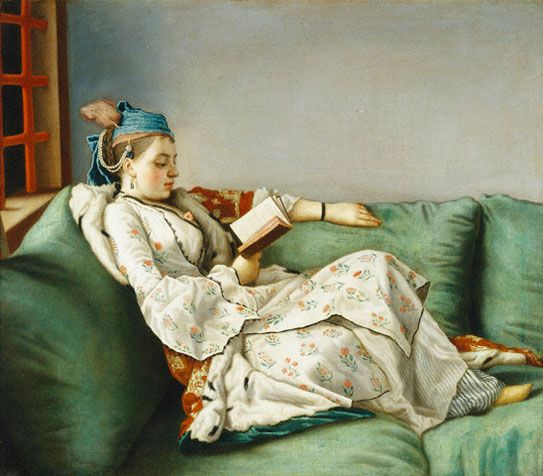 |
| Courtesy: Allen & Unwin |
With most Minervans being in town this month we had a good turn up for our discussion of this year's Miles Franklin Award winner,
Questions of travel by Michelle de Kretser.
While some hadn't finished the book, all enjoyed (or were enjoying) it - so the conversation started with members sharing some favourite "bits". One member, though, admitted that at the beginning she was a little irritated by the clever one-liners but said that, as she continued reading, she became fully engrossed in the characters.
The novel spans the life of its two main characters - the Australian Laura and the Sri Lankan Ravi - over four decades, from the 1960s to 2004. And, as the title suggests, it encompasses many continents, though the last half of the book is pretty much set in Sydney.
Members shared aspects of the book that intrigued them the most. One for example loved how the novel describes the evolution of the Internet (remembering Yahoo, Frames, etc) and other digital technologies such as the first camera phones and the move from Discmans to iPods; while others were particularly amused by de Kretser's descriptions of corporate culture. Given that Laura and Ravi were born in the mid-1960s, we could relate pretty closely to the world they experience ... well, to some of it. Ravi's horrendous experience in Sri Lanka, which results in his arrival in Australia as an asylum-seeker, is something quite beyond our personal experiences.
Our currently-travelling member sent in a brief comment via Facebook:
I
found Michelle's book wonderful, and great reflections on the meaning
of travel ... our heroine, someone who followed the random path of
meeting people on her journey was a great study, sometimes sad, often
inspirational.
We all liked de Kretser's writing, and agreed with Kerryn Goldsworthy's praise (for
The lost dog but included in our paperback versions):
Her writing is very witty, but it also goes deep, informed at every point by a benign and far-reaching intelligence ... so engaging and thought-provoking and its subject matter so substantial that the reader notices only in passing how funny it is.
Because it
is funny - often excruciatingly, embarrassingly, so. One scene a member mentioned occurs when Laura goes to India and asks a taxi driver to take her to a particular hotel:
'Oh yes, madam. Number eleven.'
Thinking he had misunderstood, Laura repeated the name.
'Yes, madam,' he said over his shoulder. 'Number eleven. Lonely Planet'
Checking, Laura finds that her hotel is indeed no. 11 on the
Lonely Planet map key for the city!
De Kretser captures, with few words, the little details that characterise certain people, places and times - with a reference to Doc Martens here, or the challenge of opening aerogrammes there, with a mention of pinot grigio (was it really popular way back in 2003 one member wondered?) or of corporate-sponsored gym memberships. And she often makes us squirm in the process. Other times she surprises us with something beautiful. Ravi's wife, Malini, for example, describes the night as rising rather than the sun as setting.
We talked, of course, about travel - about travelling to see something new (which is what Laura thinks it's about) or travelling to escape (which is what Ravi does). De Kretser suggests that Geography, rather than History, is destiny - though one member took some offence at this, believing that History Is The Thing! However, we left that discussion for another day!
A member reminded us of the lovely little story when Laura goes to Berkshire and notices an interesting old brick being used as a doorstop. The home-owners are surprised at her query but do some research. They discover that it could date back to the seventeenth-century, but then they simply put it back. It makes Laura think about people's connection to place. This neglected, old brick confirms the family's long connection to the place. By comparison, she sees her own people as
a vigorous, shallow-rooted plant still adapting itself to alien soil.
We gave some thought to the main characters, feeling rather sorry for Laura who is repeatedly referred to as "the runt" by her father. No wonder, we felt, she wanted to travel. We wondered about the anonymous phone calls she receives regularly throughout the novel. Were they from her father? We wondered about Ravi's ungrateful treatment of those who try to help him, but felt that it was partly due to a dislike of being obligated to others. We laughed about some of the other characters, such as Laura's truly awful friend Tracy Lacey and the hypocritical, ignorant work colleague Crystal Bowles. Their names tell us, we thought, what de Kretser thinks of them!
We briefly discussed how the book reminded us of other authors. One member suggested Patrick White, seeing some of his intensity in Laura, while another saw Dickens in the grand satirical sweep of the novel.
Our booktrade member shared some ideas from the publisher. We particularly liked the idea that the book is about a "search for home - not just where it might be, but what it is". None of us had quite seen it from that angle, but it made sense.
Life, de Kretser seems to be telling us, is a journey, one we all need to make in our own way. Near the end, Laura still believes
The magic land existed. It had to - hadn't Laura always known it? She would find it yet: in the depths of a wardrobe, at the top of a faraway tree.
But, as not all members had finished the book, we decided not to discuss what really did happen to Laura! We agreed, however, that this book merits multiple reading. Next plane flight perhaps?





